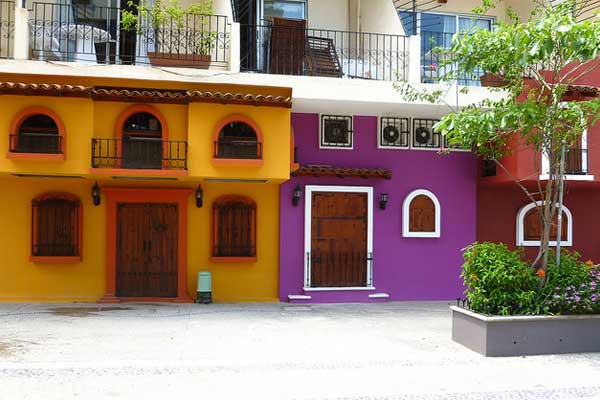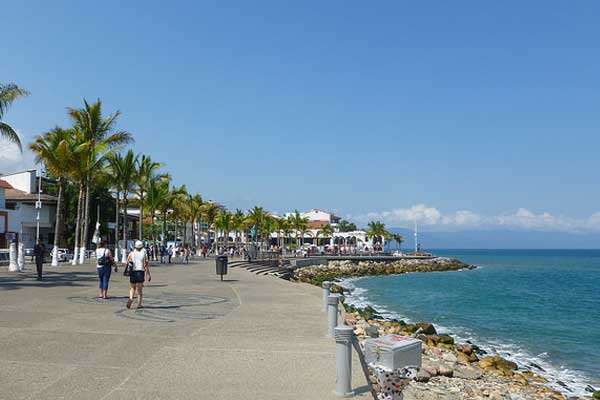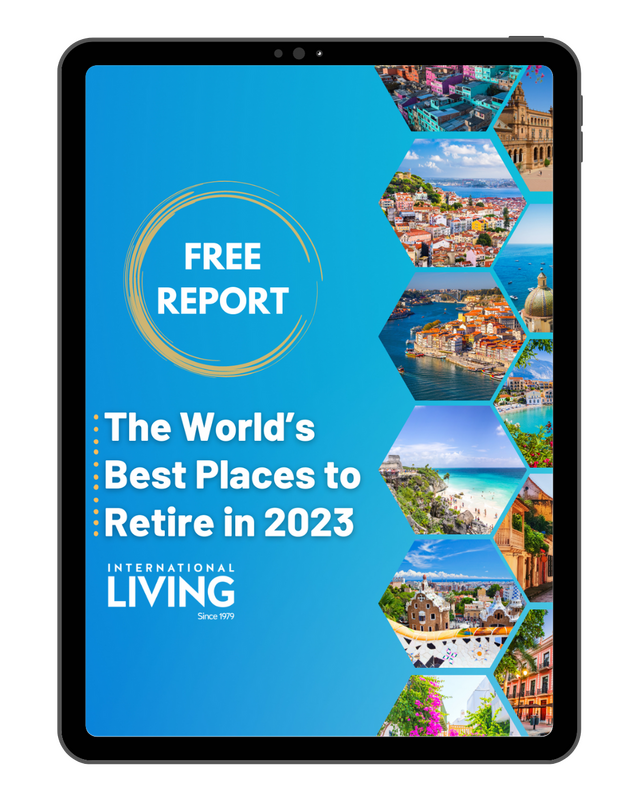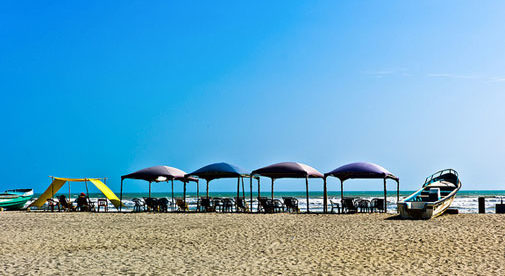Exchanging your existing life for a brand-new life, in another country, is a really big deal. For many, moving overseas provides a grand and wonderful adventure while significantly reducing living expenses and offering an overall improvement in lifestyle. But, there will be challenges along the way and it’s best to be prepared.
Where Should You Go? What Country and What City?
Figuring out where to go is the most important challenge faced by those considering retiring or moving overseas. The list of places is almost endless. Future expats often spend months and sometimes years researching numbers of countries, corresponding with expats who have already made the move, subscribing to relevant publications and blogs, using the Google thing, and perhaps spending thousands of dollars visiting one or more countries. In the end, however, regardless of the research you have done, the only sure way to determine if a country is right for you is to actually live there for an extended period of time, beyond a few months. A two-week visit is nothing more than a vacation and living somewhere, full-time, is much different from vacationing there.
The first thing to recognize is that any choice you make will not be perfect because nothing is perfect. Second, there is no singular, correct way to become an expat. You can do it your way. Many folks begin slowly, spending only three to six months per year in their adopted country. They keep one foot in each life, and gradually spend more and more time outside the U.S. Others plunge right in with no looking back.
If you move abroad and discover that you aren’t happy, you can move again. Moving abroad is not necessarily a lifetime commitment. It can be a chapter in your life, if you wish. You may even elect to become a “half-pat,” spending about half your time in your adopted country. Or you may decide to try more than one country. Like I said, no rules.
Certainly, do all the research you need to do to feel comfortable, understanding that you cannot possibly know all the answers before you go. Moving overseas is the perfect example of jumping off a bridge and learning to fly on the way down. The greatest asset you can have is confidence in yourself, knowing that you will be able to handle whatever challenges you face. In an ironic twist, it is often in our later years, when change becomes more difficult to accept, that we decide to move abroad. If you are making the move with a partner, their support is crucial. This isn’t the time to drag someone along who is pushing back against such an adventure.
Regardless of which country or region of a country you select, you are the key to your success. It is not the country that will present the challenges; it is your ability to adapt to change that will color your experiences.
Your New Home: Should You Rent or Buy?

There is conventional wisdom on this topic and it suggests that expats arriving in their new country should rent a home for at least one year before buying anything. The truth is that nearly all expats go through an initial “honeymoon” period where they are enchanted with their new surroundings. Compared to back home, the fruits and vegetables are fresher, the people are friendlier, the landscape is more pleasing, the climate is better and all this for far less money than the prices back home. What’s not to like?
But then, after about six months, you may learn that the power goes out when it rains and the internet service is not always stable. The local gasoline station occasionally runs out of gas and resupply may be delayed. Of the three ATM machines in town, only one regularly works, and it is occasionally runs out of money. You discover that most of these problems don’t exist in another town, about two hours away. Maybe that’s the town where you should live.
Real estate agents and developers and even some expat friends will encourage you to buy real estate soon after arriving because, “you know, it’s a great investment and the price will only go up.” In fact, owning real estate is often a very good investment but knowing where you want to live is important. Going with the conventional wisdom on this is a safe bet. Rent for a year or so before buying anything. You can learn a lot about your new community (and the people in it) in a year of renting before shelling out serious cash.
How Should You Manage Your Money?
Generally speaking, there are two things you can do with your money and monthly income when moving overseas. You can leave things the way they are, with monthly checks deposited into your existing Stateside accounts, or you can choose to open a bank account in your new home country and have some, or all, of your monthly checks sent there. There are advantages and disadvantages to both options.
First, not all foreign banking options are the same. Depending upon the country, you may feel perfectly comfortable with the banks there. But on the other hand, there have been foreign banking failures without the sort of insurance protection afforded depositors in the States. Foreign interest rates may also be more favorable as will access to your funds from a local bank. Foreign accounts are often easily opened, by showing your passport and making a modest initial deposit. In some cases, a residency visa must be provided.
Such funds as Social Security checks and most pensions can be electronically deposited to foreign banks, same as they are in your home bank. Foreign banks also issue ATM cards and credit cards.
Should you choose to do nothing and simply maintain your existing accounts, you can access your money with your current ATM cards, up to the limits set by your bank. For large purchases, such as a new car or real estate, you may transfer funds electronically from your home bank to the foreign bank of the seller. There will be fees, of course, and an exchange rate to absorb which may or may not be favorable. But major purchases don’t happen often. You can or use your ATM card for moderate purchases up to your limit. Security is usually not an issue.
Leaving Family and Friends Behind
Of the number of expats who ultimately return to their home country, a significant number say they missed their family, especially grand kids. Missing friends and family is a tough issue for most expats. When planning your budget, be sure to include an allowance for family visits once or twice per year or more if your budget permits.
Skype video call service is a lifeline for expats across the globe. It is a free service facilitating video phone calls between two computers anywhere on the planet as long as there is an Internet connection. Simply download Skype’s free software and follow the prompts. You can be up and running very quickly.
Facebook also offers free video chat services through their Private Message feature. You can participate in a video chat with any of your Facebook friends at no cost. Simply open up a private message with whomever you want to call. You will notice some small icons in the blue border along the top of the message window. One is for phone calls (the one that looks like a telephone) and the camera icon will connect you for a video call. Again, a free service.
Video chats, phone calls, exchanging photos, and periodic visits will go a long way toward staying connected to those you love.
What Do You Do With All Your Stuff?
For most folks, the issue of dealing with all the stuff you’ve accumulated over the years is a tough one. After all, we grew up in a culture where the collection of stuff is normal. So, this decision is as much about emotion as it is about logic. There are two obvious camps when it comes to this issue.
The first camp is determined to bring their stuff to their new home country and the second group, sells it all, relocating with only the essentials.
The expense of moving all your stuff is often the deciding factor. It typically costs thousands of dollars to move furniture and boxes of personal items to another country, usually far more to move your stuff than to buy new essentials when you get to your new home. Some countries allow the importation of household goods without a tariff attached while others charge numerous fees and tariffs on top of the transportation costs. Importing goods can be tricky so be sure to do your research on this.
In between those who sell everything before the move, and those who bring everything, are those who bring only those items that they must for their emotional comfort. Check with your new country on tariffs and fees assigned to imported household goods. Knowing the rules and associated expenses, may assist you in your decision.
My advice? Sell it all. Take only those things that will fit into the number of suitcases permitted by the airlines. You can buy everything you need when you get to your new home and you’ll save thousands of dollars in the process.
Surrendering Your Brand Loyalties
Madison Avenue has spent decades and gazillions of dollars to ensure that you have anchored yourself to the brands you now use. And don’t pretend you’ve not been affected. We all have. But moving outside the U.S. will necessitate that you break up with many of your favorites. Your favorite brand of peanut butter and coffee, beer, and ketchup, if it can be found, will cost much more in your new home country than a local brand. And what about your personal hygiene items like soap, shampoo or makeup? Again, if you can find them, they will cost two or three times as much as a product produced back home. But you’re likely not to find them.
So, here’s what you do. About six to eight months before you depart the U.S., start buying off-brand products in every category. Wean yourself off Skippy and Jiff, Budweiser and whatever morning cereal you buy. Whatever your preferences have been, walk right by them in the store and purchase an off-brand.
And while you’re at it, start using your weak hand as much as possible (good for the brain) and it wouldn’t hurt to start some language classes. After all, your new life is all about change. It’s good to get a head start on it.
Learning the Language of Your Adopted Country

While this list is presented in no particular order, learning a new language definitely belongs near the top of anyone’s list as it is likely to be the greatest challenge and the one with the most impact on every aspect of your new life.
You must learn the language of your newly adopted country. Imagine your existing life, living in the U.S. or Canada, and not speaking a word of English. That does not mean you have to be completely fluent in your new language, but you will certainly need to convey your needs and wants as well as understanding those responding to you.
It is not essential to understand every word being spoken to you nor is it important to speak in perfect, grammatically correct sentence structure. That just won’t happen for a while. You can get along just fine speaking like Tarzan in those old black and white movies. “Tarzan Talk” is perfectly acceptable as you learn and the local folks will appreciate your efforts.
Simple phrases, although not grammatically correct, will provide a way to communicate and survive. You will feel remarkably accomplished once you can manage a few key phrases. A rough translation of “Me hungry. Want food” will get things moving along in any restaurant.
My wife Diane and I have incorporated virtually all learning methods as we have plodded along in our Spanish. We have now passed the five-year mark, living in Latin America, and we have used several internet-based courses, we have purchased a couple of well-known learning programs using DVDs, we have taken private lessons, group classes and readily engage in conversations with locals. When it comes to learning a second language, one size does not fit all and what works well for one person may not be right for another. Diane really loved our private language tutoring in Ecuador but me…not so much.

Get Your Free Report on the World’s Best Places to Retire:
Learn more about the best places in the world to retire in our daily postcard e-letter.
Simply enter your email address below to sign up for our free daily postcards and we’ll also send you a FREE report on The World’s Top 10 Retirement Havens, plus access to over 10 more free reports. Our gift to you, on our favorite destinations.
Related Articles
The World’s Best Places to Retire in 2018
Living Internationally: How to Enjoy a Roving Retirement
Going Solo: How and Where to Enjoy Life Abroad as a Single
Upcoming Conferences
The Only 2024 Fast Track Panama Conference
If your dream retirement involves stunning beaches… lush green mountains… a warm climate with no hurricanes… first-rate healthcare… incredible value for money (a couple can live well on $2,200 a month)… and the World’s #1 Retiree Discount Program…
Join our Panama experts and expats in February and discover why Panama could be your perfect paradise.


.png)